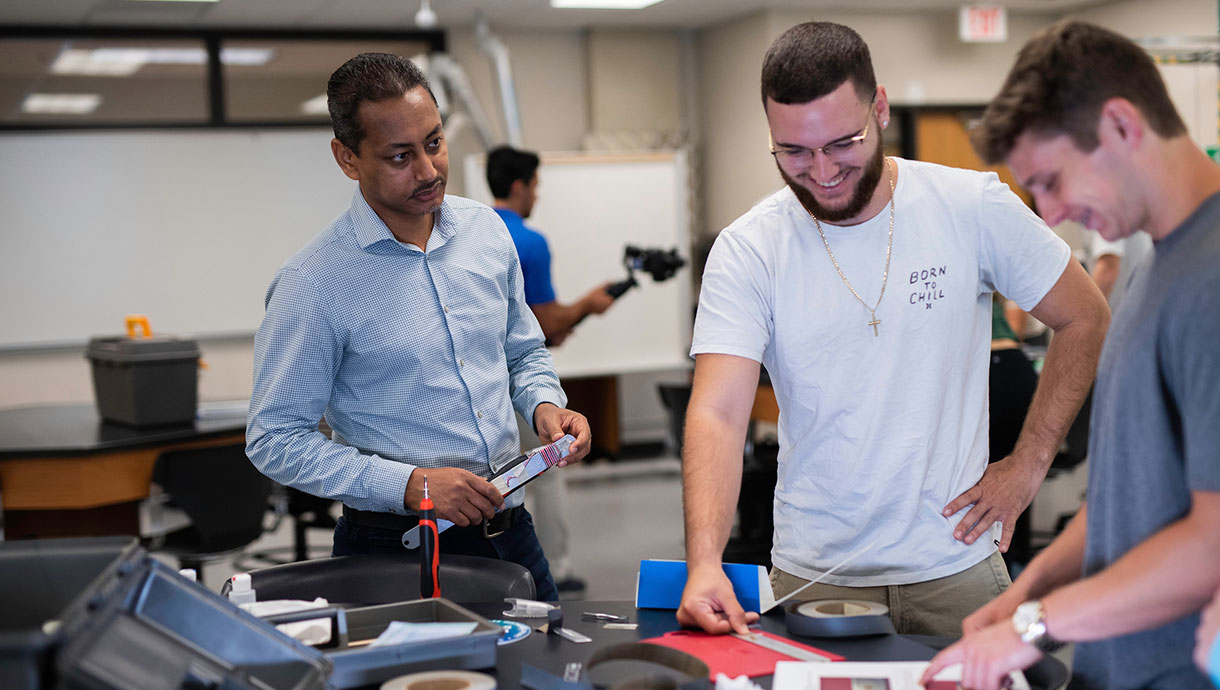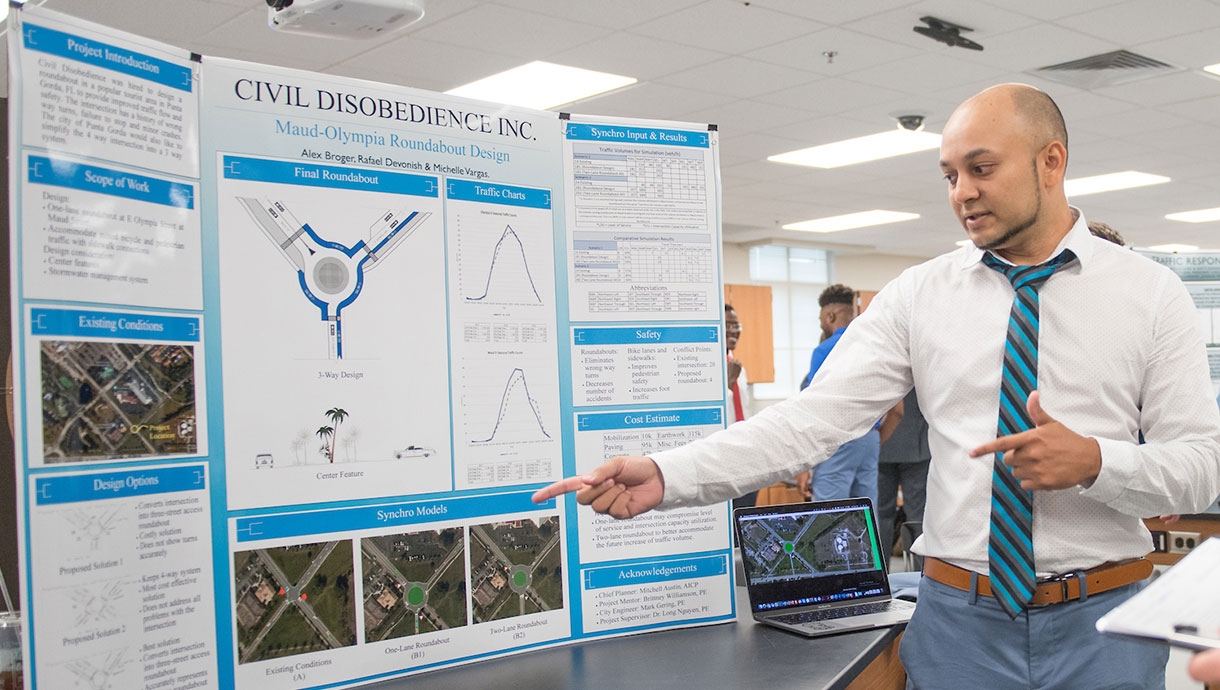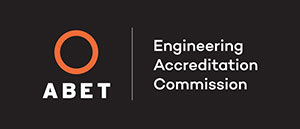Civil Engineering (B.S.C.E.)
Civil Engineering concerns the conception, design, construction, and maintenance of large public and private projects. Civil Engineers are responsible for creating sustainable infrastructure that ensures the safety and welfare of the public.


Civil Engineering Facilities
Pictured below are a few of the spaces that Civil Engineering students frequent.
Machine Lab
The Machine Lab provides equipment for student projects. The Machine Lab is used by both staff and students. Our lab managers and coordinators construct and repair equipment for research and classes. Students undergo safety training and are taught how to work the various pieces of equipment before they can use them for course assignments.
High Bay
In this area, faculty conduct materials research with undergraduate Civil Engineering students including asphalt, concrete, and other material property tests.
-
Accreditation
Toggle More Info -
Admissions Information
Toggle More Info -
Program Requirements
Toggle More Info -
Degree Map
Toggle More Info -
Course Description
Toggle More Info -
Course Schedule
Toggle More Info -
Educational Objectives and Student Outcomes
Toggle More Info -
Learning Outcomes
Toggle More Info -
Tuition, Fees, and Financial Assistance
Toggle More Info


